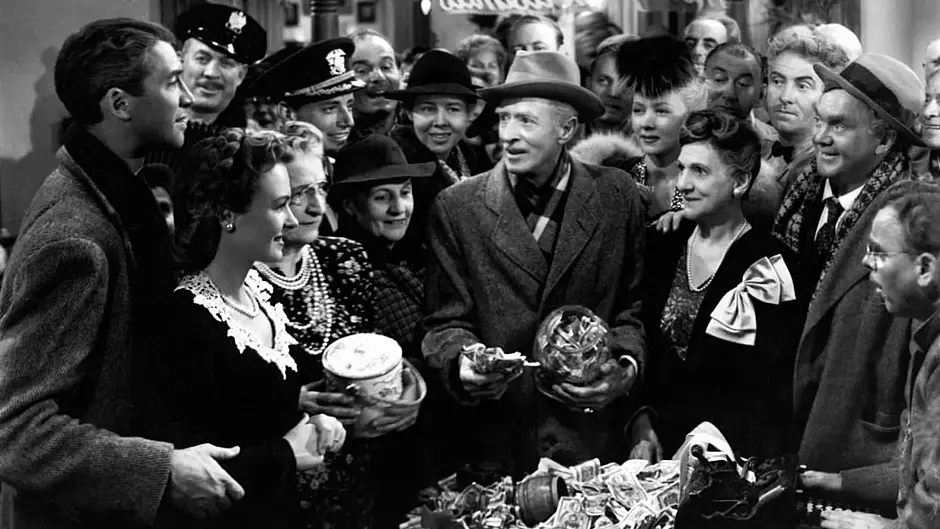CHRISTMAS films don't come any better than It's A Wonderful Life, which is perhaps one of the most aptly-named films of all time for the feeling it leaves you with as the credits roll.
Almost 80 years after its original release in 1946, the film still stands strong at the top of many critics' Christmas lists and it's easy to see why.
The very basic story, for the uninitiated: It's Christmas Eve and George Bailey (James Stewart) is contemplating suicide, and wishes he had never been born. His prayers reach Heaven where Clarence (Henry Travers), an inexperienced angel, is sent down to save George's life and earn his wings.
Over the course of the film, George learns to live again through his own memories and realises the positive impact he's had on those around him — most crucially through the Credit Union-esque Building and Loan Society, which helps people in his town build and own their own homes.
A battle takes place between George and the miserly Henry Potter, a landlord and hoarder of wealth whose attitude to housing wouldn't look out of place among the vulture funds of today.
The film was met with a relatively lukewarm reaction upon its release.
One critic wrote in The New York Times that 'the weakness of this picture, from this reviewer's point of view, is the sentimentality of it — its illusory concept of life. Mr Capra's nice people are charming, his small town is a quite beguiling place and his pattern for solving problems is most optimistic and facile. But somehow, they all resemble theatrical attitudes, rather than average realities.'
Opinions can differ, of course, but what that reviewer points out as weakness is in fact the film's greatest strength. Sentimentality is such a powerful storytelling tool and is too easily dismissed with a cynical attitude.
Of course, cynicism is seen as a writer's currency in some parts, so perhaps it's not surprising to see such a response. However, from this reviewer's point of view, the films 'illusory concept of life' is something we should be aiming for rather than ridiculing.
Our relationship with older films is an ever-changing one. Many people automatically switch-off once they see the black and white picture on their screen, and it can at times be difficult to differentiate between certain films from an era which used a tried and tested formula.
Studios ruled supreme in Old Hollywood but director Frank Capra manages to cut through any similarities and leaves us with a film that is memorable, not only for the quality of its performances and story, but the way in which each frame oozes warmth even in the cold winter setting.
It's not the kind of film you can half-watch, either. Even if you wanted to scroll through your phone, Stewart's sad eyes and fragile voice draw you in with each passing moment until the credits are rolling almost before you have a chance to breathe.
James Stewart shines as the broken George. It was his first role following his role as a fighter pilot in World War Two and with hindsight you can almost feel a sort of PTSD running through his performance, something which became more common as his career progressed. Stewart was known for playing the idealised and virtuous American man before the war, and came back to prominence with darker and more ambiguous roles afterwards.
That fact made him perfect to play George, a man who has to re-learn how to love not only who he is, but life itself.
The famous bank run scene illustrates the combined power of script and actor.
You can feel George's desperation through his voice and a sense of relief bursts through the screen when people decide to keep their accounts open with him rather than sell their shares to baron Potter. In the context of Ireland in 2022, the power of a community standing up for the chance to own their own homes is even quite emotional.
Credit Unions across the country should redirect any and all advertising funds into keeping the film in the primetime slot on RTÉ 2 all year. I guarantee it would boost membership figures as anyone who watches the film without wanting to go to war for even the idea of a community working together is a true Scrooge.
The beauty of It's A Wonderful Life comes from its timelessness. Almost 80 years on, the themes remain relatable and, in a society where capitalism and consumerism seem to know no end, the lessons taught through the film are as relevant as ever.
It is a wonderful life, isn't it?






